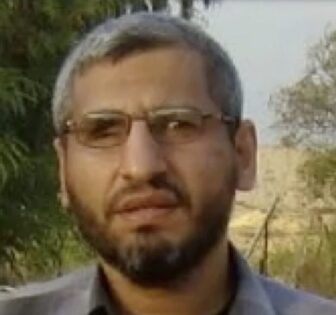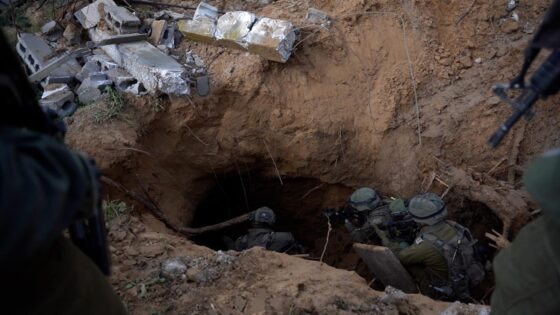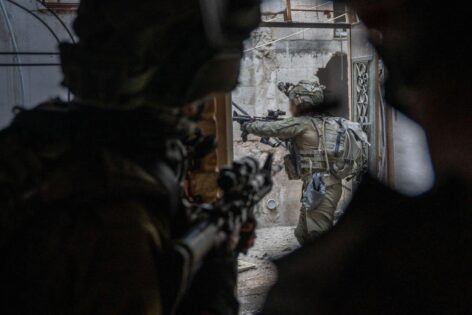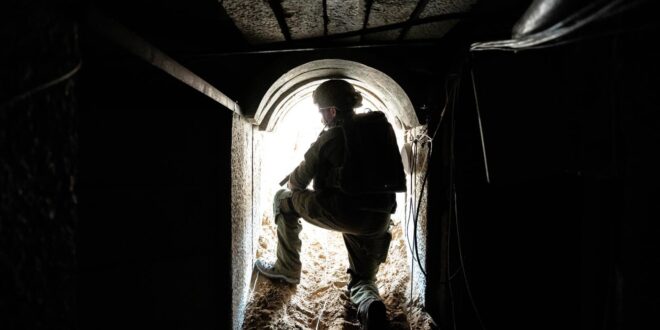by Elon Perry
Recruiting an informant is a long and complex process.
There is one phenomenon that worries Hamas almost as much as the Israeli military in Gaza: the thousands of informants who risk their lives for Israel. Without their work, none of the operations to kill senior Hamas officials would have worked or the hostages been rescued.
So why do they do it – and how are they recruited?
An informant’s fundamental mission is to locate targets such as senior Hamas leaders, weapons production tunnels and Hamas operatives who travel throughout the Gaza Strip dressed in civilian clothing.
The informant passes this information to his Israeli handler – but never, usually, by phone or any other device, lest he be exposed. It is always done in a meeting at one of the kibbutzim in southern Israel, near the border with Gaza.
SEE Elon Perry’s new book, Children in War: A First-Hand Account of the Israeli-Palestinian Conflict
This information is then passed to the Shin Bet, which forwards it to the army, which in turn forwards it to the cabinet – where approval to attack is (or is not) granted by the prime minister.
Only in exceptional circumstances can a communication device be used, if the information is “hot” (ie needs to be acted upon immediately) – such as when a senior Hamas figure is visiting a specific place but only for an hour or two, or when it is information regarding a location where hostages are being held and the informant understands that the hostages will be relocated the same day. If a phone is used, it will be the number of an Israeli Arab citizen. The person receiving the call might pretend, for example, to be the informant’s aunt who is interested in the situation in Gaza. This “aunt” will be an agent working for Israeli intelligence.
One of the informants engaged in Mohammed Deif’s successful assassination was a Hamas “messenger” – a 19-year-old whose role was to pass messages written on notes between Hamas members scattered underground around the Gaza Strip. Fearful of Israeli surveillance, Hamas tries to communicate solely in writing, using code and coloured paper.
This courageous young man is no longer in Gaza. The bargain with him was that if the assassination operation was successful, he would be flown at Israel’s cost to the United States and given asylum. Following the success in eliminating Deif, Hamas is now deeply concerned about the phenomenon of Gazan collaborators and has used the Al Jazeera news channel to threaten all Gazan inhabitants.

Before he was assassinated, Mohammed Deif was the commander of Hamas’ Military Wing.
Recruiting an informant is a long and complex process. When the recruiter locates a potential informant, he first searches for his immediate weak point and what he needs. Is it money, an entry permit to Israel or urgent treatment for his child in an Israeli hospital?
For the recruiter, someone who needs and depends on immediate help from Israel is the best candidate. Another weak point can be social or psychological: the recruiter seeks out young Palestinians who suffer from feelings of inferiority or rejection by society, and offers them a daring role that needs courage and brings appreciation, money and the feeling of being someone important.
READ MORE from Elon Perry – Entebbe: The Story of Israel’s Daring Raid to Rescue Its Hostages, Told by a Commando Who Was on the Mission
In my time as a commando in 1980s, I took part in hundreds of operations to locate and eliminate terrorists in Gaza. Recruiting informants was easier then because the leaders of the terrorist organisations did not yet suspect their locals.
Due to Israeli censorship restrictions, I can only reveal one or two cases from 1983. The Shin Bet would select a local candidate after numerous tests regarding his profession, character and his past.
One case I was involved in was a cover created for a Gazan building contractor. Israel opened a huge depot for him in Gaza for selling building materials. First, it was in line with his profession; secondly, it would justify his frequent visits to Israel for the purpose of “purchasing building materials”. While his truck was being loaded with actual goods, the informant would sit with his operator and submit the information he had obtained. These meetings were held in the homes of citizens who served in the security forces or Shin Bet retirees who would offer their home for an hour or two.
The second incident was the rescue of an informer from Rafah who had been exposed. We had to rescue him from being lynched. He was a very intelligent 22-year-old man who worked in one of the PLO offices and had access to sensitive material. He was relocated to one of the Arab cities in Israel, married an Israeli Arab woman and started a family.

IDF soldiers descend into a tunnel.
More recently a Hamas terrorist captured during the Gaza war was recruited by Israeli intelligence and asked to walk through the tunnels in Gaza. He did not arouse suspicion because he was known to the terrorists as one of their own. His Shin Bet controller gave him shoes with electronic chips that scanned the tunnels he was walking in. The scanned findings were sent directly to the Shin Bet headquarters in Ashkelon, 8 miles from Gaza.
Another informant was a Gazan contractor who was involved in digging the tunnels. He supplied the Shin Bet with a map of the location of the tunnels, their internal size, length, and the type of concrete he used. This helped determine which bombs the Air Force should use to destroy the tunnnels. This informant was almost captured by Hamas but Israel managed to smuggle him into Israel.
Hundreds of Gazan citizens have been recruited by the Shin Bet, and their information is bearing impressive fruits. And the more Gazans see the success of Israeli operations, the more willing others are to cooperate with the IDF and the Shin Bet. More obviously, the instability and economic situation in Gaza tempts many to cooperate in exchange for significant benefits. Israel pays them a lot of money in cash.
Thousands of collaborators who fled Gaza and the West Bank after being exposed are now settled in Israel, enjoying freedom. All the local informants involved in the rescue of the four Israeli hostages – twelve Gazans, including two families – were relocated to Israel. Today they enjoy Israeli citizenship and a monthly subsistence allowance until they integrate into the Israeli labour market. One of the family members, a 12-year-old boy, is currently receiving medical treatment in Israel for his cancer, paid by the state.

Precise action is based on precise information. IDF photo.
Another motive is that the Gazans understand that the war will end with the defeat of Hamas, and that it is worthwhile to help Israel end the war faster and thus reduce their suffering. Anger directed at Hamas for the spread of crime such as robbery, theft, and looting, and the feeling that the Hamas leadership has abandoned them. “It is Hamas that is killing us, not the Israeli army,” my friend Saeed, a dentist from Gaza, shouted to me when I spoke to him this week.
Hamas is concerned about the improvement of Israel’s intelligence capabilities and the amount of quality intelligence it gathers, both as a result of the seizure of intelligence material in the tunnels and Hamas headquarters, and from the interrogation of Hamas terrorists captured by the IDF. This is in addition to the golden intelligence delivered by collaborators working with the Shin Bet.
Hamas has begun taking extreme precautionary measures, including arrests and investigations into Gazan citizens. Sinwar imposed a ban on senior commanders using mobile phones and even meeting family members.
The IDF says that 942 collaborators from Gaza and the West Bank were shot during the 1987 intifada, murdered by Palestinians in the town square, in broad daylight and in front of hundreds of locals as a warning. But their willingness to continue this dangerous activity has not stopped at all. It has increased over the years and reached its peak when Hamas took control of Gaza and began attacking Israel on an almost daily basis, both by firing rockets and by launching suicide bombers into Israeli population centres. Now it is proving equally vital.
Elon Perry is a journalist and former commando in the Golani Brigade of the IDF. See his new book, Children in War: A First-Hand Account of the Israeli-Palestinian Conflict.
 Soldier of Fortune Magazine The Journal of Professional Adventurers
Soldier of Fortune Magazine The Journal of Professional Adventurers






